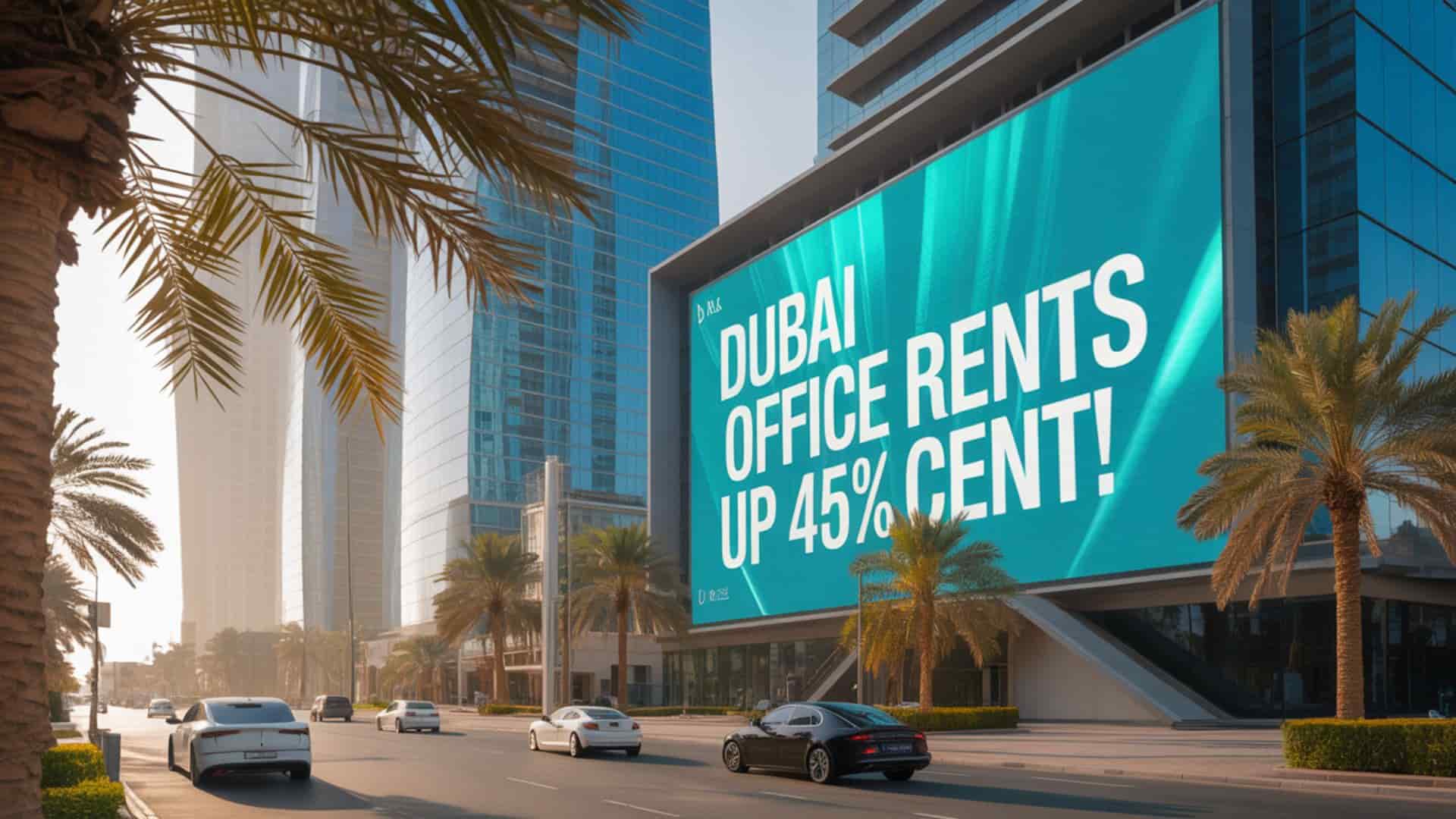Different Types of Visas in Dubai
The charm of Dubai attracts all types of visitors such as – tourists seeking adventure, business professionals exploring opportunities, job seekers chasing dreams, and expatriates yearning for new beginnings. Dubai has lots of things to explore because it has a mix of modern and traditional culture, along with beautiful deserts and coastlines.
If you are planning to visit Dubai, you need to apply for a visa at least a month prior to your visit. Dubai visa application process is easily available online. Basically, there are two main visa categories: entry visa for short-term visits and residence visa for long-term stays. Each visa category has its own deciding factors such as your nationality, intended duration of stay and purpose of stay.
However, if you are a citizen of the Gulf Cooperation Council (GCC), you are eligible for visa-free entry or a visa-on-arrival. The GCC includes Bahrain, Kuwait, Oman, Qatar, Saudi Arabia, and the United Arab Emirates. All other foreign nationals must obtain a visa to enter the UAE.
A UAE visa is a travel document that allows the holder to travel to the UAE for a specified purpose and duration of stay. UAE visas can either be issued electronically through one of the official government websites or through an accredited UAE-based enterprise (hotel, airline, travel agent, etc.).
Validity of Visa
The UAE offers a variety of visa types for different purposes and durations of stay. All UAE visas are valid for 60 days from the date of issuance until the date of entry into the UAE except for the Transit Visa which is issued for a period of either 48 or 96 hours.
Each visa type allows for a different duration of stay depending on the purpose of your trip. The duration of the stay starts from the date of entry into the UAE. Over 50 nationalities are eligible to enter the United Arab Emirates (UAE) by obtaining a visa on arrival for stays of either 30 or 60 days depending on the passport they hold.
So, if you are planning to visit Dubai, here’s a comprehensive guide to help you find the types of visas, within each category, that are available to accommodate different travel needs.
Entry Visas
Entry permits are intended to cater to individuals who wish to visit Dubai for different purposes, including tourism, business visits, transit, job hunting, and medical treatments with companions. Here are the details of the types of visit visa in Dubai.
Tourist visa
If you are planning a trip to Dubai for leisure or tourism purposes, a tourist visa is required. A standard tourist visa can be provided by an airline, any friend/relative who is resident in the country or by an approved tour operator. However, as per rule, women below the age of 18 are not allowed to apply for this visa type.
The tourist visa validates multiple entries and is applicable for either 30 or 90 days. The charges of a single-entry visa for a minimum of 30 days are approximately AED 350. This is also the best visa option for families who are interested in short vacations.
Transit Visa
If you need to travel frequently due to business and Dubai is your go-to transit stop, then you can consider getting a transit visa. Also known as a 96 hour transit, the transit visa, allows you to enter Dubai for a brief period on the way to your final destination.
You can get your transit visa if you are flying on one of the following national airlines –Emirates, Fly Dubai, Etihad Airways and Air Arabia. You may need to check each airline's set of rules. You can get the transit visa on arrival in Dubai at Terminal 1 and 3. However, this visa is not guaranteed as it involves the approval from Dubai immigration department.
The charges for a transit visa can be as less as AED 50. You just need to carry your confirmed ticket out of Dubai and your passport which must be valid for a minimum period of 6 months at the time of travel.
Student Visa
This type of visa is especially for expat college students who desire to study in Dubai. In order to apply for this visa, students will need an admission letter from their university, passing medical fitness test and a visa sponsor. The visa sponsor can either be the respective university or a parent/relative resident in Dubai.
The student visa is a type of residence visa therefore your university can get it for you once you are in the country. This would mean that you first require an entry permit for the studying process. However, being accepted into a university doesn’t guarantee you the visa. The final decision depends upon the immigration authorities.
The student visa's validity is 1 year. Yet, in 2018, a new type of long-term-residence visa was introduced by the government. This visa is valid for five years for exceptional students.
5-year multiple entry visa
This special type of visa is offered to individuals who wish to visit Dubai under their own sponsorship for multiple occasions. The maximum stay-limit is of 90 days per trip. It also allows visitors to extend their stay for 90 days.
The 5-year multiple entry visa is available to individuals of any country. It provides them easy and convenient processes to manage their multiple in-outs from Dubai.
Job seeker visa
The Dubai job seeker visa is a special visit visa. It lets people come to the UAE on their own to find job opportunities. You can get it for 60, 90, or 120 days. To qualify, you need at least a bachelor's degree, earn at least AED 5,000 per month, and show that you have enough money to support yourself.
Residence Visas
Securing a Dubai residence visa holds significant importance, primarily because the country doesn't provide permanent residency. Instead, foreigners are required to periodically renew their visas to sustain their stay within the city.
A Residence Visa is provided for people who wish to reside in Dubai long-term. This type of visa can be acquired by entrepreneurs, investors, professionals, students or even retirees. Expatriates residing in Dubai also need to obtain residence visas for their families. Renewing these visas is a straightforward process, enabling them to continue living with their loved ones in the city.
Benefits of the UAE Residency
Acquiring a UAE residency provides the opportunity for either permanent residence or frequent visits. This is especially advantageous for individuals who do not receive a tourist visa upon arrival.
For individuals interested in establishing a corporate bank account in Dubai, holding a residential visa for Dubai is regarded as a low-risk classification in terms of compliance.
There are several methods to gain UAE resident status:
- Establish a company in the UAE.
- Get employed.
- Create a freelancing passport in Dubai or one of the other Emirates.
- Register at a university or institution.
- Be reliant (it can be a child or a retired parent of a resident).
- Possess property worth more than 1 million AED.
- The UAE Golden Visa.
- Retired people can apply for a resident visa in the UAE.
Unlike the short-stay entry visa, resident visa in Dubai is usually valid for 2-3 years. However, it can be extended up to 10 years. Here are various categories that allow people residency privileges in Dubai.
Property Owner Visa
If you own a property valued at AED 1 million in Dubai, you automatically qualify for an investor visa, provided the property is not mortgaged. Property investors are required to provide a copy of their passport and the title deed to the Dubai Economic Department. Therefore after approval, the Department will issue a trade license for the property. With the obtained trade license, individuals can obtain a 2-year residency visa.
Subsequently, investors with a property valued greater than AED 5 Million is eligible for a 5-year renewable visa and property valued at AED 10 Million and above is eligible for 10-year long visa.
Work Visa
To work legally in the UAE, you must have this visa. When a company hires you, they handle all the needs of how to get work visa in Dubai for you. This includes a medical test, photos, passport copies, and a certified educational certificate. Your company acts as your sponsor. With this, you can get a residency permit for two years, and if you change jobs, it can be moved to your new employer.
Retiree Visa
If someone has stopped working and is 55 years or older, they can get a retirement visa that lasts for 5 years. To qualify, they can do any of the following:
- Buy a property worth AED 2 million.
- Have savings of at least AED 1 million.
- Receive a monthly income of at least AED 20,000.
Green Visa
The UAE Green Visa is a long-term residence permit that allows the holder to act as their own sponsor for five (5) years. The Green Visa is typically reserved for freelancers, self-employed workers, and skilled employees.
Candidates must have a legitimate employment agreement and be categorized in the Department of Human Resources and Emiratization’s first, second, or third organization base. A bachelor's degree or comparable is required, and their annual pay cannot be anything less than Dh15, 000.
Golden Visa
The UAE Golden Visa is a long-term residence permit that allows eligible foreign nationals to live, work, and study in the UAE provided they meet all criteria. This residence visa allows stays from five (5) to 10 years.
Residence visa for working outside the UAE
This residence visa type is for foreign nationals who want to reside in the UAE but work remotely for an employer based outside the country. This one (1) year visa permits self-sponsorship provided you make at least 3,500 USD or the equivalent in another currency per month.
Visa for family members
Citizens of the UAE can support their relatives, including boys under the age of 25 and single girls of any age. Kids of determination, regardless of age, are awarded a residence visa. Green Visa bearers are eligible to sponsor first-degree relatives. The period of relatives and friends' residence is the same as that of their benefactors.
Humanitarian Situations
There are three types of legal residency to cater to humanitarian-related situations:
- A female citizen whose spouse died and she have one or more kids.
- Parents or kids of UAE nationals who possess travel documents.
- Spouses or kids of GCC nationals who have foreign passports.
UAE visa types cost and fees
The UAE offers a diverse selection of visa options designed to cater to the specific needs and preferred duration of stay for visitors. Please note that the fees and costs associated with these visas are subject to potential changes without prior notice.
Entry visas:
- Transit visa: AED 50
- Tourist visa: AED 250-690
- 5-year multi-entry visa: AED 300-700
- GCC e-visa: AED 250
- Job seeker visa: AED 1495 – AED 1815
Residence visas:
- UAE Golden Visa: AED 2,800 – AED 3,800
- UAE Green Visa: AED 2,280
- Student visa: AED 1000 – AED 3000
- Retirement visa: AED 3,714
- UAE investor visa: AED 1035 – AED 13,000 (approximate amount; prices vary depending on the nature of investment)
Final thoughts
In conclusion, the UAE offers a variety of visa types to cater to different categories of individuals. Whether you are an employee, investor, student, retiree, freelancer, or property investor, there is a visa option that suits your needs.
Obtaining a residence visa is crucial in ensuring legal residency in the UAE and enjoying the benefits of living in this dynamic country. You may get anything from a quick visa issuance to getting your residence visa in Dubai validated in no time.


